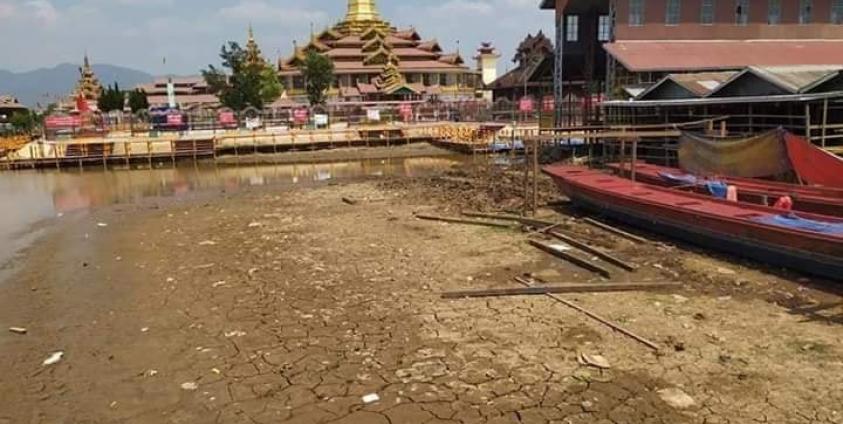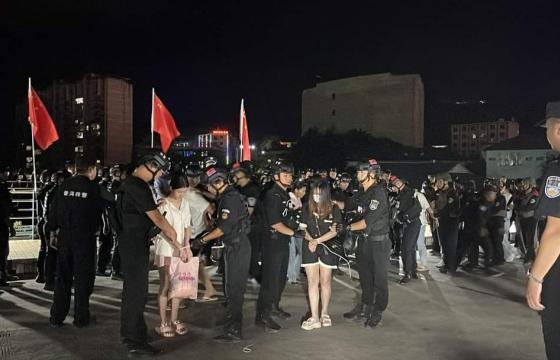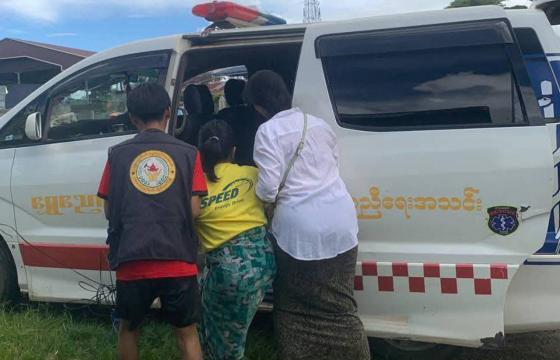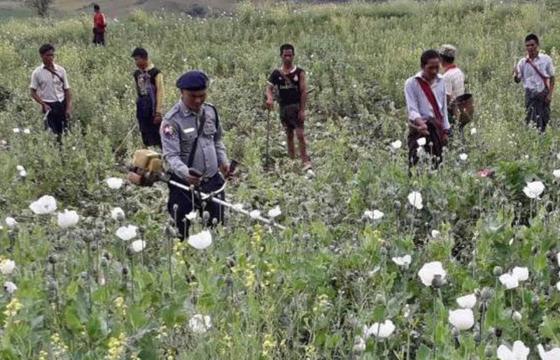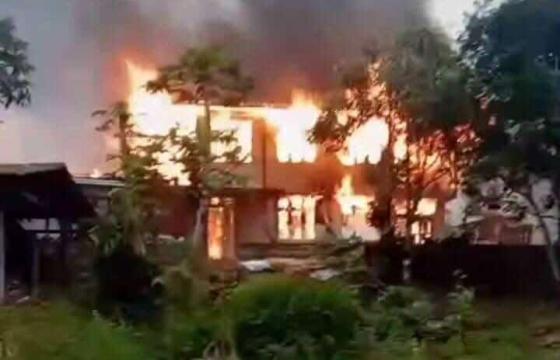Farmers who rely on Inle Lake in Shan State’s Taunggyi District for agriculture are struggling to maintain their livelihoods as water levels continue to decrease.
While the lake typically goes down in the March-May dry season, and has been documented as having done so since 2010, the water levels this year are lower than in previous years, locals have said.
“The lake is obviously lower than before, and it is difficult for our farmers who rely on the lake and for transportation around the lake,” said Pho Lay, a farmer from Yawnghwe Township, in Burmese referred to as Nyaungshwe.
Without rain and with the lake receding, farmers have resorted to transporting water to their crops by motorbike or car twice each week.
“The water on our farmland is dry after three days,” another area farmer said of the difficulties in irrigating their fields. “If there is no water, we can’t continue our agriculture and it will affect our livelihoods, especially those who primarily rely on this lake.”
In the past, government officials have blamed villagers for the lake’s troubles. In June 2014, Shan State’s former forestry and mining minister Sai Aik Pao was quoted in a meeting as attributing the lower water levels on Inle Lake to deforestation perpetrated by locals who were gathering firewood.
The lake’s woes have been widely documented as being attributable to a variety of factors: construction of multiple major hotels along its shores; increased reliance on chemical fertilizers in the lake’s growing number of floating gardens; and perhaps most significantly, climate change, which has brought shorter winter seasons and hotter, longer summers with record-breaking high temperatures.
As Inle Lake was a major tourist destination before the COVID-19 pandemic hit, those who relied on the flow of visitors to the area are also now struggling to survive.
“We can’t do anything about the farmland, because the water from the lake is drying up,” Inle resident Sandar told SHAN. “COVID-19 is spreading all over the place, and there are no visitors at all. It is very difficult for us to make an income to support our livelihoods in this situation.”
A total of 146 people have been confirmed as having the coronavirus in Burma, where there have also been five deaths and 10 recoveries.
Translated from Shan by Sai Seng Han.


